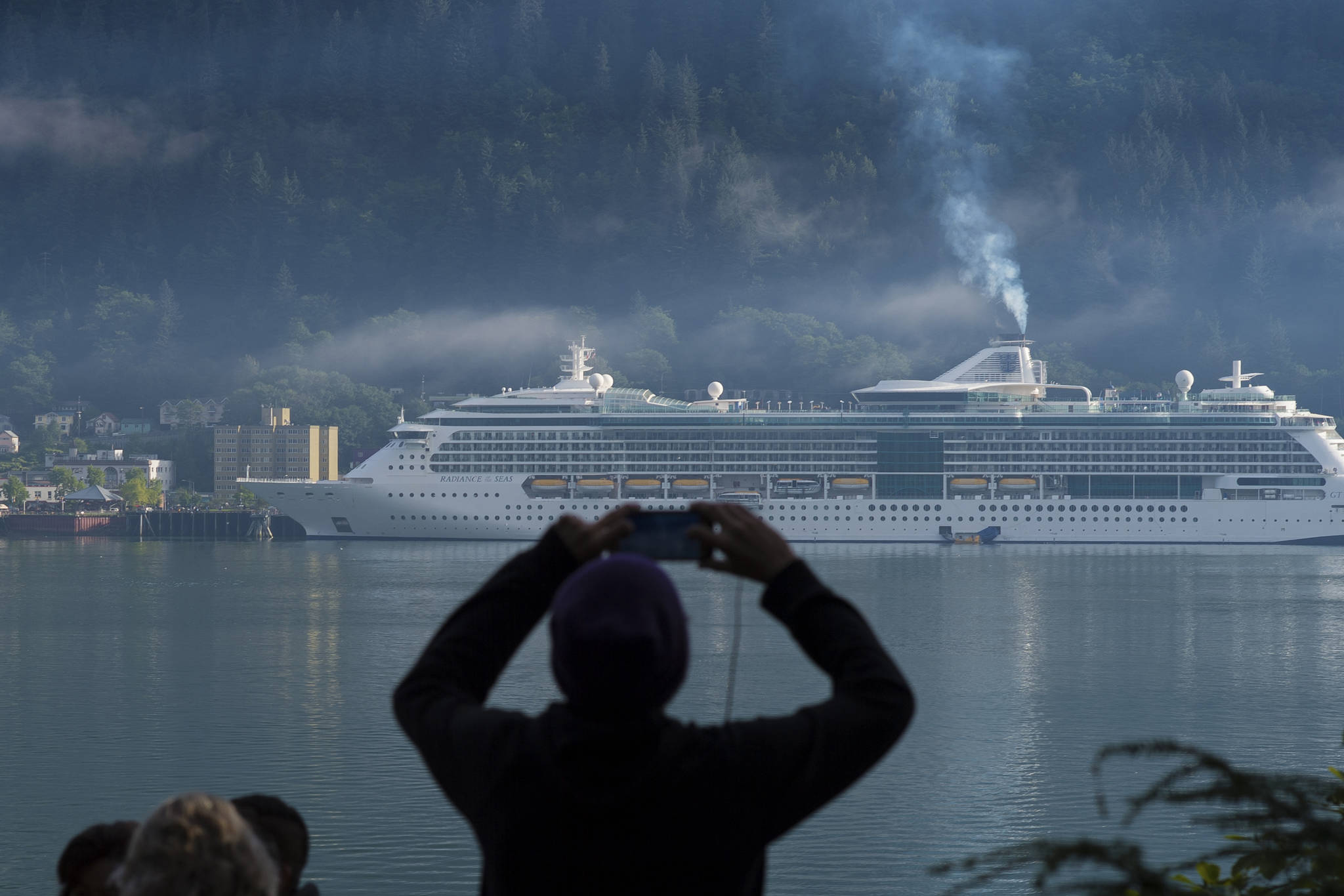The lawsuit between the cruise industry and the city appears to be coming to an end, though there are still questions as to the specifics of a long-awaited ruling that came Thursday.
U.S. District Court Judge H. Russel Holland issued his decision Thursday, mostly favoring the Cruise Lines International Association’s (CLIA) Alaska affiliate in its case against the City and Borough of Juneau. The case was to determine how exactly cities can spend the money they collect from marine passenger fees and port development fees, also known as head taxes, which are fees collected from each cruise ship passenger.
Holland ruled that it’s constitutional for a city to collect these fees, which CBJ City Manager Rorie Watt said was good news to them. Holland also ruled that municipalities can only spend the revenue from those fees on “endeavors that facilitate the marine operations of plaintiffs’ members’ vessels.” In other words, the money can be used to benefit the cruise ships, not the cruise passengers or the general public.
“Passenger benefits are not relevant,” Holland wrote in his 35-page decision. “The proper question as to each category of expenditure by (the CBJ) is: Does the expenditure provide a service to a vessel? If the answer is yes, the expenditure is constitutional. If the answer is no, the expenditure is unconstitutional under the Tonnage Clause.”
In essence, the Tonnage Clause of the U.S. Constitution prohibits the states from charging for a vessel’s cargo without providing a service to the boat, as CLIA’s attorney Jonathan Benner explained in oral arguments in September. Benner still hadn’t been able to fully digest everything in the decision when reached for comment Thursday, but said he was “very pleased” with Holland’s decision.
Watt said CBJ staff members have been carefully examining the wording of the decision to try and figure out what exactly constitutes a service to a vessel. In his ruling, Holland listed a few examples of what’s constitutional and what isn’t. Maintenance costs for a gangway that benefits passengers getting on and off the cruise ship is fine, he said, because it benefits the boat as well as the passengers. Salary for crossing guards and maintenance costs for sidewalks, he wrote, are not constitutional because there’s no benefit to the ship itself.
Still, Watt said, the ruling doesn’t include an ironclad definition on what it means to benefit a vessel.
“Given that the cruise ship’s whole point of existence is to move around people on vacation,” Watt said, “I think that’s the question. What is the service to a vessel when the vessel’s whole point of existence is to take people on vacation?”
The decision sets a precedent for more than just Juneau and Alaska, Benner pointed out, as this is a constitutional argument and can be applied to municipalities all around the country. Holland acknowledged in his ruling that “the case is ripe for declarations of law.”
“The general principle is that fees cannot be used as a kind of revenue stream to finance things away from the vessel itself but may have some incidental benefit to passengers,” Benner said, “or are primarily the kinds of things that, if it were Jamestown, New York or some internal city, would be paid for out of general municipal revenues.”
CBJ officials and attorney Bob Blasco (representing the city) have argued that the city has used funds to serve cruise passengers. Blasco stated during oral arguments in September that he wanted CLIA officials to be more specific about the ways they thought the CBJ had misused passenger fees.
In the original complaint in 2016, CLIA pointed to the construction of an artificial island for Juneau’s whale statue as an example of a violation, asserting that it was too far away from the cruise docks to serve the passengers. As time has gone on, the statue has become less and less of a focus in the case.
CLIA’s lawsuit isn’t seeking to make the CBJ pay, but Benner and CLIA President John Binkley have said previously that they’re just looking for a clarification in the law.
Benner said he’s not sure what the next steps will be, saying it depends on if the CBJ wants to file an appeal. From reading Holland’s decision, Benner said he believes the decision is meant to be a final ruling in the case.
“We think (Holland) has resolved the key issue,” Benner said.
• Contact reporter Alex McCarthy at 523-2271 or amccarthy@juneauempire.com. Follow him on Twitter at @akmccarthy.

